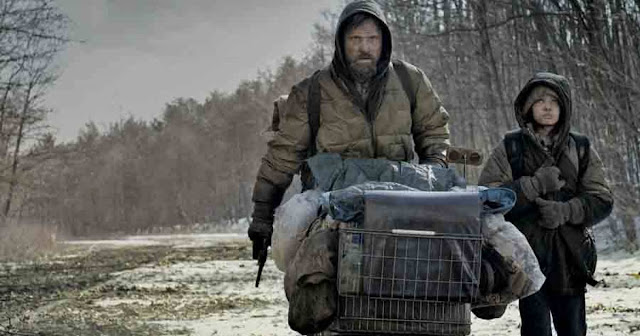the top 100, I've placed them in this list of the next hundred best sci-fi
Best Science Fiction Books 101-200
the top 100, I've placed them in this list of the next hundred best sci-fi
Ernest Cline - Ready Player Two Review
Ready Player Two is fan-fic of '80s and '90s culture along with fan-fic of Ready Player One. The navel gazing aspect of Ready Player Two's fan-fictioning of its own universe hurts the book immeasurably. A too-big chunk of the book is spent recounting the quickly fading glory of Ready Player One (and we can surmise, the quickly fading book sales and royalty checks now that the movie fanfare has quieted). I suppose if Player Three ever gets a turn at the controls, the narrative will be so bogged down by empty nostalgia that nothing new will happen at all.
Back to the Future and Unreliable Technology
Cormac McCarthy - The Road
The post-apocalyptic landscape is bleak in Cormac McCarthy's The Road. Food is scarce, so many of the ashen faced survivors of a meteor strike that has devastated the world's ecosystems have turned to cannibalism.
The Road is about survival, identity, and care for others. The central relationship is between a father and his son. McCarthy didn't name his characters, so Man and Boy will have to suffice.
Father and Son
McCarthy's inspiration for the book was thinking about his role as father to his son. The role of raising a child, teaching them what they need to know to not only survive but to live well, carrying traditions forward, letting go of control so that the son can mature and take on responsibility. But, McCarthy placed the time-honored tradition of raising a son in a disturbed world where survival is a battle. Living is often dependent on killing.
Review of Attack Surfaces - Cory Doctorow
Cory Doctorow writes the books that need writing. In 2020, that's a book about police surveillance and the firms hired to bootstrap big scary surveillance tech on the backs of militarized police forces, forces that were scary long before they could track the movement and communications of citizens. But Doctorow doesn't just pull back the cover on scary tech and the firms that operationalize it. He counterbalances the acceleration of surveillance and control with democratic resistance. Doctorow's heroes stand up to power and keep standing up to power until that power stands down.
12 Monkeys - I Want the Future to be Unknown
I want this to be the present. I want to stay here this time, with you.
Little Brother - Cory Doctorow
I'd read Down and Out in the Magic Kingdom before Little Brother. So, I knew that Cory Doctorow does more than tell stories. He extrapolates on the intersection of society and technology to consider what the future will be like. In Down and Out, the future is kind of odd. The only currency that matters is social currency. In other words, reading the (chat)room is all important. Down and Out is a utopia, a eu (good) and u (nowhere) kind of topos (place). As long as people like you, Doctorow's future Magic Kingdom offers a kind of immortality. Death is forever averted by loading one's backups into fresh bodies. The desire to cheat death through technology has a history with Disney. Walt had his body cryogenically frozen in hopes that doctors and scientists in the future could revive him and extend his life. But in Doctorow's world of extended life, life only matters if others value you.
An Interview with Robert G. Penner, Author of Strange Labour
Robert Penner was editor at Big Echo, which ran for four years and published boundary breaking SF. Now he's moved into his own boundary breaking with a bold, new book, Strange Labour.
Some books have a painterly quality. The images jump off the page, vivid windows into worlds that veer into territory at once strange and familiar. That's where Penner's Strange Labour begins and ends. Penner is an imagist in the quality of the moderns as much as he is a postmodernist and a genre writer. Strange Labour is literary SF, merging philosophy with PK Dickian skepticism, like anxieties about using marijuana for fear of scrambling one's own genetic material.
Cat's Crade - Kurt Vonnegut
This book "is devoted to pain, in particular to tortures inflicted by men on men." - from the Sixth Book of Bokonon
Paul Virilio's Original Accident considers how new technology creates ever greater possible calamities. The passenger airplane creates the air crash. The highway creates high speed car wrecks worthy of J G Ballard. Essentially, Virilio riffs on the balance between life and death, creation and decay. Everything is wolved by the fangs of entropy. But some technology resists classification here. Think of DARPA's soundwave based weapons, microwave based weapons, nuclear weaponry. None of that technology exists in some kind of mystic yin-yang between swell-ish and hellish. No, this crap was created to hurt people, to flatten cities, to maintain political sovereignty and economic might.






